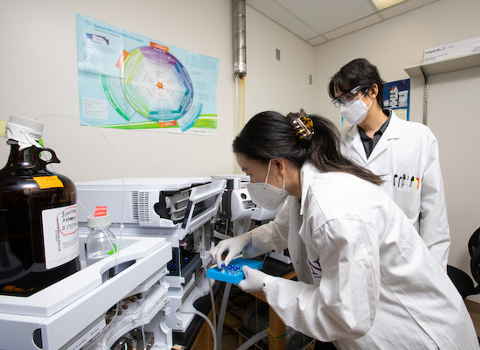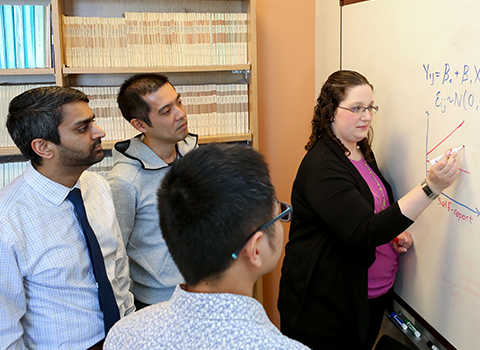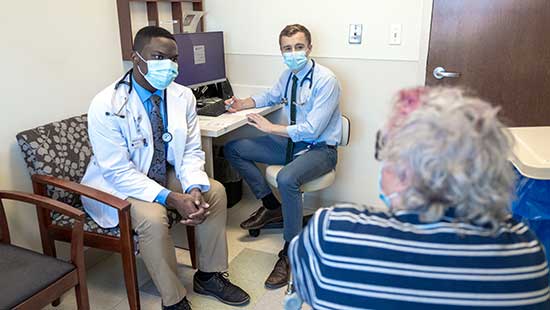 Siobhan Phillips, PhD, MPH, has been appointed co-leader of the Cancer Control & Survivorship (CCS) program, joining current co-leaders Christine Rini, PhD, and Betina Yanez, PhD, who will continue in their roles. Dr. Phillips is currently a Professor in the Department of Preventive Medicine and the Director of Physical Activity Promotion in the Cancer Survivorship Institute at the Robert H. Lurie Comprehensive Cancer Center. Dr. Phillip’s interdisciplinary research is focused on understanding the determinants and outcomes of physical activity participation, designing and optimizing innovative interventions and clinical trials to maximize adherence, physical and cognitive function, health and disease outcomes, and longevity, and translating research into practice with an emphasis on cancer prevention and control.
Siobhan Phillips, PhD, MPH, has been appointed co-leader of the Cancer Control & Survivorship (CCS) program, joining current co-leaders Christine Rini, PhD, and Betina Yanez, PhD, who will continue in their roles. Dr. Phillips is currently a Professor in the Department of Preventive Medicine and the Director of Physical Activity Promotion in the Cancer Survivorship Institute at the Robert H. Lurie Comprehensive Cancer Center. Dr. Phillip’s interdisciplinary research is focused on understanding the determinants and outcomes of physical activity participation, designing and optimizing innovative interventions and clinical trials to maximize adherence, physical and cognitive function, health and disease outcomes, and longevity, and translating research into practice with an emphasis on cancer prevention and control.
Siobhan is pleased to join Dr. Rini and Dr. Yanez in this role, bringing a unique perspective shaped by her work in health behaviors. Dr. Phillips looks forward to further advancing the Cancer Control and Survivorship program’s high-impact work and driving continued improvements in cancer survivors’ well-being, health outcomes, quality of life, and longevity.








